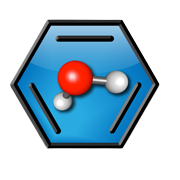Advances in Molecular Quantum Chemistry
One of the important advances in Molecular QC is the study of molecular entanglement. This concept has been around since the 1970s but is only recently gaining importance. With the use of quantum mechanical theory, it has been shown that atoms are entangled when they share the same position in space. The theory states that these atoms are able to be measured in two independent ways – the measurement using the atomic repulsion, and the measurement using the energy change of their respective electrons.
Maintaining the coherence between the molecules in this process will make it possible to perform the experiment on many particles. One of the main challenges that molecular researchers face now is developing accurate tools to measure the entangled particles. This is done by using magnetic and electronic methods. When these methods are combined, they become even more powerful. It has been proven that the measurements made by these methods give a good indication of the behavior of a molecule.
Another advance in Molecular QC is the study of molecular bonds. A bond is a chemical relationship between two molecules. In our case, it is the bond between two atoms. Bonds are formed by bonding between different molecular structures such as molecules, polymers, proteins, and lipids.
Molecular bonds are the foundation of biochemical reactions. Thus, in MQC, we can study and calculate the rate of reaction and also the probability of a compound acting as a catalyst. There are also many tools that are available in this field for the purpose of analysis and quantification.
In addition, molecular bonding allows us to know the molecular size of a molecule. Molecules are smaller than atoms. So, understanding the molecular size will be able to tell us more about their chemical properties and stability. It will also help us understand how the molecules interact with other molecules.
Finally, molecular quantum chemistry is the study of molecular vibration. Vibration is the natural frequency that comes from the motion of molecules. They have their own inherent frequency which cannot be changed. Therefore, in this study, we can also learn the effects of external sources such as gravity and electrical charge fields.
There are many other advances in Molecular QC, including: study of the atom and molecular bonding, the structure of molecules, the quantum mechanical processes involved, molecular bonding, and the study of molecular energy and motion. This is just some of what we can expect to find in this field in the future. With the continuous development of research, we will be able to make molecular experiments even more effective and more realistic.
The molecular tools of MQC will help us to study many molecules, including protein complexes, DNA, polymers, and complex molecular dynamics. It is expected that these tools will also be used in the study of molecular interaction and in the study of cellular processes. These tools can help us understand and interpret the results of various studies.
The advances in molecular quantum chemistry is the only way to make sure that we get the results that we need when we perform our biochemical experiments. We must always be able to reproduce the results. to do this, we need to be able to use the tools of molecular quantum chemistry.
Molecular quantum chemistry was first used in laboratories a few decades ago. However, it is still being used in a wide range of industries including food processing, biopharmaceutical, the food and pharmaceutical industry, and the environment.
Molecular quantum chemistry is a broad science, so there is much more to learn than has been written here. If you are looking to learn more, it would be a great idea to browse around the internet and check out all of the available resources available for this fascinating topic.

